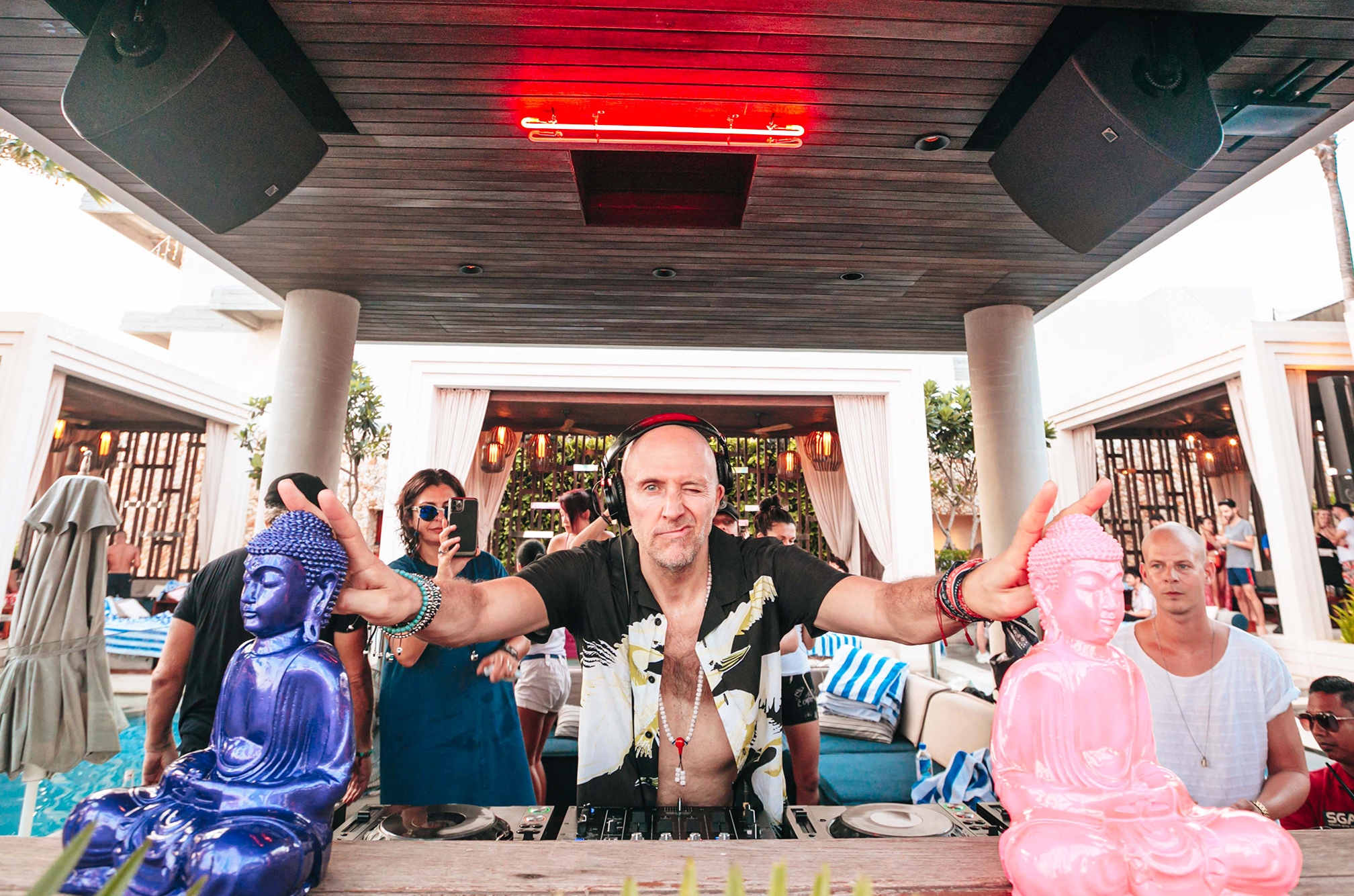 Features
Features
From Ko Phangan to Burning Man & back — Lee Burridge returns to the Far East with ADID
There’s no party like Lee’s party
As the sun set over Uluwatu’s dramatic coastline and cast crimson hues across OMNIA’s incandescent cube shimmering in the foreground, Lee Burridge took over from Double Touch and Zone + and assumed his position at the podium of his very own temple of worship — the DJ booth. The melodic maestro delivered to Bali a magical tale of ethereal moments elevated by blissed-out shades of house and techno that were complemented by draping fabrics, fairy lights and lanterns. The aesthetic didn't just draw from Burridge's Brooklyn-born and Burning Man-inspired All Day I Dream brand, but from a career that was nurtured right here in Asia.
Having propelled his career as a DJ in Hong Kong in 1991, this event was more than just a debut of the ADID concept in Asia — it was the culmination of a 30-year career that was developed in the region. And last Sunday, Burridge brought it back full circle to the part of the world that inspired the brand’s motif in the first place. Landing at OMNIA Bali with his signature splashes of technicolour and rhythmic nirvana, Burridge transformed the day club into a whimsical playground, and no other venue could have smelled as sweet. At the same time, OMNIA proved itself as one of the region’s most versatile venues in its ability to metamorphosise from an EDM affair the week before into a Burning Man-esque experience for All Day I Dream — like it was built for it.
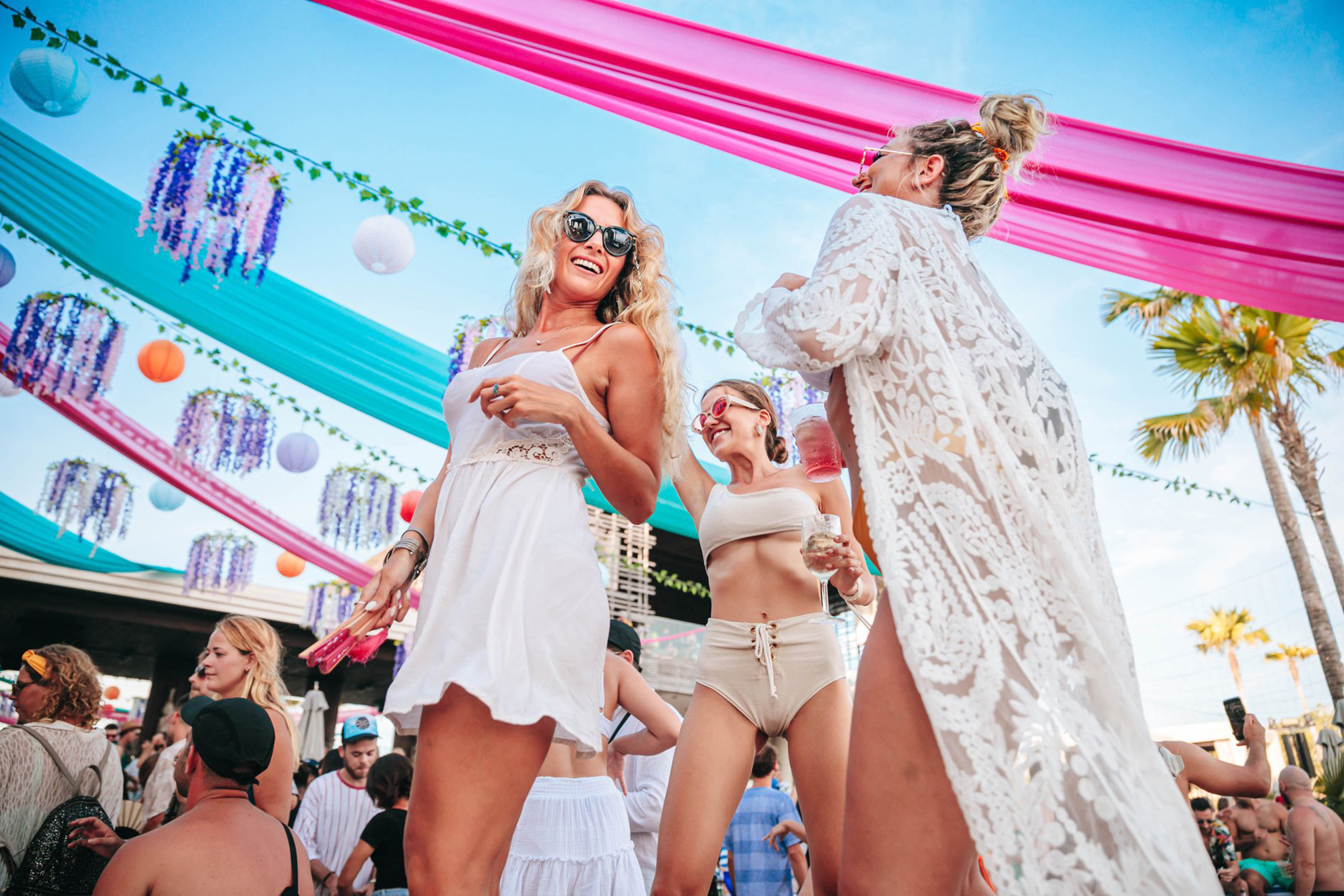
The crowd that descended on the sun-drenched shores of Uluwatu was one of many tribes — beautiful and bohemian — and the cacophony of flavours they brought with them, when coupled with Burridge’s hypnotic emotionalism, resulted in ensorceling moments sweeping across the venue in waves. The memories that we’re left with are akin to a mirage, and so we echoed the experience in an interview intended to evoke lucid memories of the event. Indulging in a decadent view from far above Uluwatu’s limestone cliffs, we spoke with the musical man of peace and covered it all beginning with that fabled day when Burridge was handed a business card to being back in Asia to where it all started where he was preparing to play his biggest show of the year — a Cercle showcase suspended 100 meters above the Indian Ocean atop OMNIA’s effervescent cube and streamed live to one million people. But first…
So it all started in Hong Kong — that’s incredible, but in fact, very few people know that (we asked). How did you get from playing weddings at your parent’s pub to acid house in Hong Kong?
It happened like — I was just offered the job, like any other job. It was 1990, about three years after the first-ever raves around London. I’d been a DJ at weddings, birthdays and…one funeral — I did a lot of interesting things in the 80s. I’d just discovered dance music and I knew I wanted to play it, but I live in a village with 50 people in it so the idea of moving to London seemed a bit daunting. It was blind luck that one day I was given a business card at a nightclub I was working at and at the other end of that was the first DJ job I was offered…in Hong Kong.
The village I grew up in had 50 people in it and only one telephone box at the time, and I would feed it coins to be able to talk to people in Hong Kong and organise the job. If it’s true and we have some predestined lives or fate, it was at that moment in that phone box that my life could have taken one or two different paths — and I just went for it.
In the end, the job wasn’t far off from what I was playing at weddings in that I played different decades of music from rock n roll from the 60 to disco from the 70s and pop from the 80s. But what I really wanted to do was play dance music, so I brought a box of dance records with me — it’s where my heart was. At the time I had no idea that it would ever be a career...
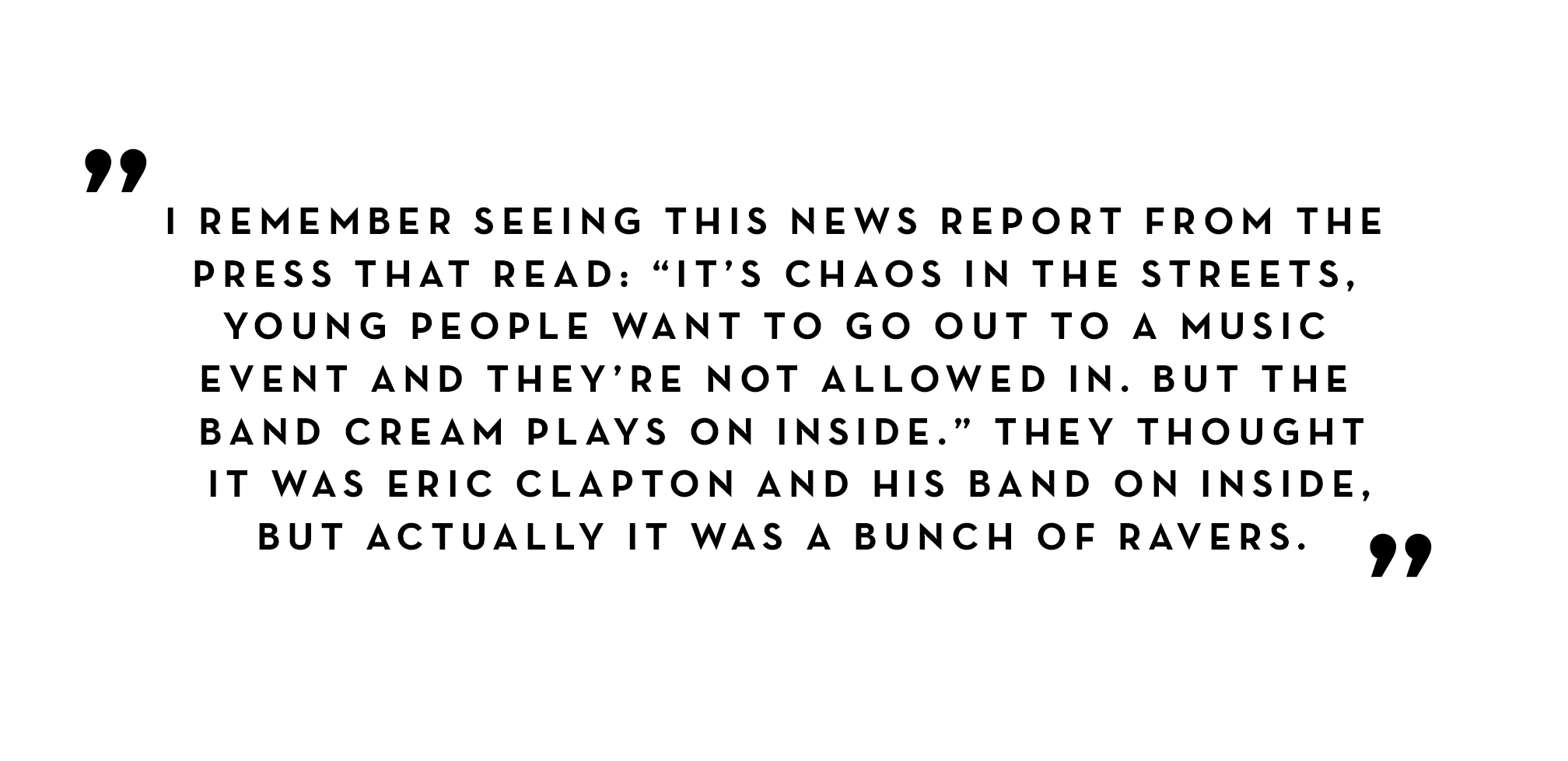
Pop music aside, was there even a music scene in Hong Kong when you arrived?
Sure, Hong Kong’s actually had some interesting moments with different types of music. There was a really lively and exciting scene in Lan Kwai Fong in the 70s and 80s before it plateaued and became bar culture as we see it today. When I got there in 1991, dance music definitely wasn’t playing anywhere, but we (me and this guy Joel Lai) knew we wanted to share this kind of music with people. And without any business acumen, we sweetly put on these raves without any thought of how we did it or making any money. It was just to share music, which is still kind of the same today but it’s turned into a business.
But people really grasped it, and immediately. The first rave we threw was on a Sunday night at a bar, and about 150 people showed up. By the time 10am on Monday morning rolled around, people started looking at their watches and disappearing — they were late for work! The next month we decided to do another one, and this time 500 people turned up. There was even a roadblock outside; it was chaos! The cops came and had to disperse everyone from the street. We locked the door and people were still hammering on it to get in, and it was at that moment that I realized what incredible potential there was in Hong Kong.
The next thing we did was get a bigger bar. We landed this fancy ballroom by lying and saying it was somebody’s birthday party. At that time, Cream was this enormous club in Liverpool, and they brought a couple of DJs out to Hong Kong. Well, a couple of thousand people turned up to the party. The hotel freaked out because they didn’t want all those people in there, and the police were freaking out too. There were all these ticket holders outside trying to get in, and I remember seeing this news report from the press that read: “It’s chaos in the streets, young people want to go out to music event, and they’re not allowed in. But the band Cream plays on inside.” They thought it was Eric Clapton and his band on inside, but actually it was a bunch of ravers.
At that time, Hong Kong just had a lot of opportunity for anybody that wanted to do anything while earning money and having fun. And because the clock was ticking and 1997 was on the horizon, there was a very hedonistic attitude heading towards this finite moment where who knew what was going to happen.
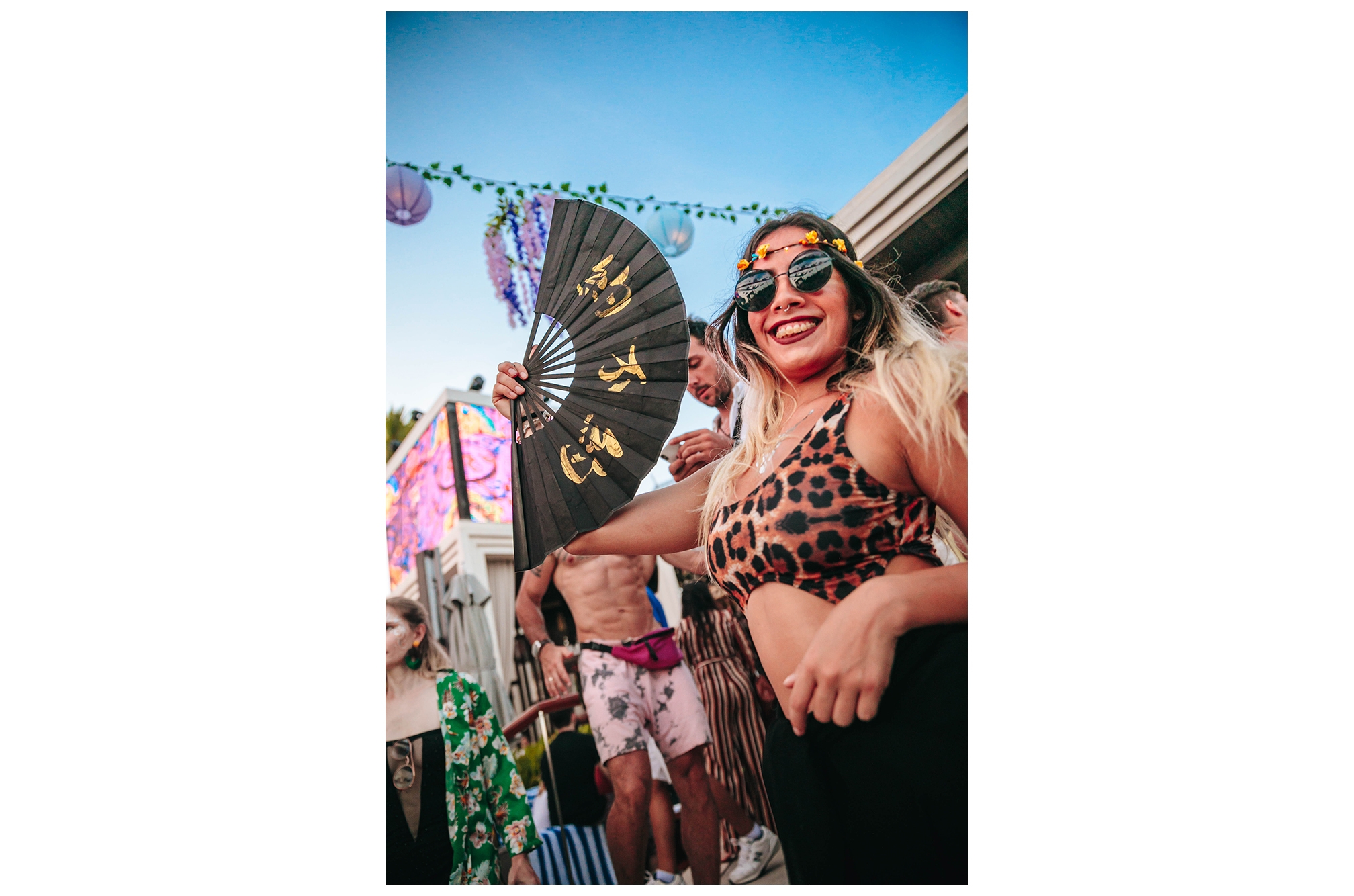
So would you agree in the way you're credited with helping launch Hong Kong's dance music scene in the 90s?
Yeah, but it was unwitting. I didn't intend to do that; I was just in the right place at the right time. I also didn't do it alone either; there were other DJs that lived there…and some still live there. But I have this perseverance in me when it comes to playing music, and that played a significant role. Actually, one of the tipping points was when I was trying to throw a regular night and no one was showing up. Literally across the street from my "day job" at Joe Bananas was this bar in Wan Chai where a band would play rock 'n roll covers to businessmen and prostitutes, and after work, I would go there and play another 2-3 hours just because I wanted to play my records loud. One day, this spark serendipitously happened, and the club just exploded. The owners later asked me to DJ more often, and since my contract with Joe Bananas was coming to an end, I ended up doing seven nights a week for literally years. This really ignited everything into one cohesive scene.
But at the same time, this guy Joel Lai was also really plugging away with his crowd building by putting on really good parties and running a record shop. He was also one of the integral elements that created this whole thing — and is still going on today.
So if we fast forward to 1994, you went to Thailand where you’re credited with the genesis of the first Full Moon Party. Is this true? It’s funny because anyone who knows anything about Full Moon parties today would never associate you with them…
Again, I was in the right place at the right time. Since the Internet didn’t exist back then, it was all word of mouth, and my friend and I had heard about this thing that had happened on a secret beach on Ko Phangan. We’d heard tales about people dancing in the sea while the sun was coming up, and for someone who is from a village of 50 people, that really sounded kinda nice. And something just compelled me to go there, so I popped down but didn’t bring any records. I arrived in Haad Rin, and somebody was in a bar playing off a double cassette deck because they didn’t have any records. They were playing mixes of other DJs and forward winded them to the place they had written down — like they would find counter 676 for the next track and then try to blend it with the one before. I think I was there three days before bought a flight back to Hong Kong, picked up two turntables and a box of records, and went straight back.
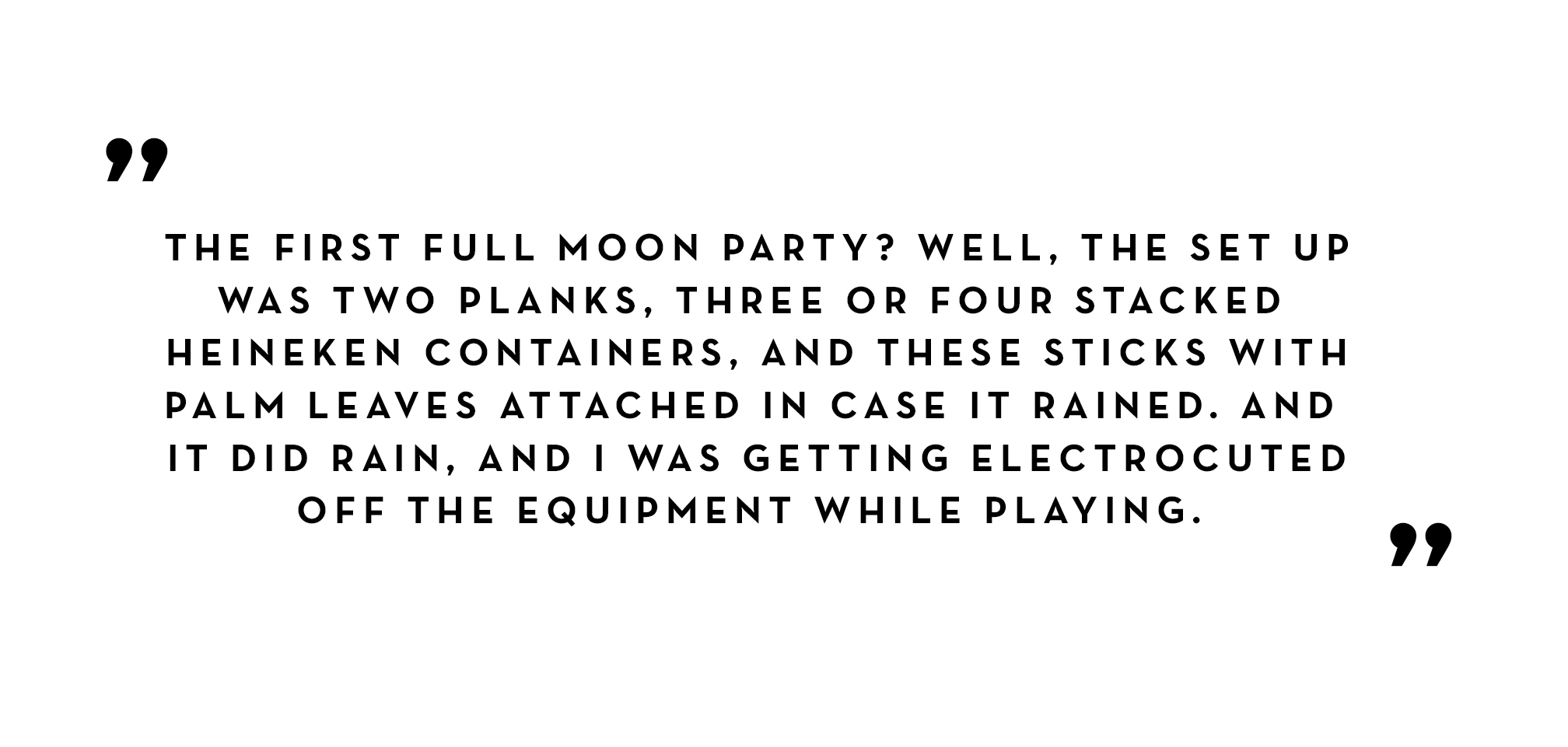
And what was the first party like?
The first Full Moon Party? Well, the set up was two planks, three or four stacked Heineken containers, and these sticks with palm leaves attached in case it rained. And it did rain, and I was getting electrocuted off the equipment while playing. At least these little shocks kept me on my toes. Then there was the first sunrise after that “first” full moon party. There were about 300 people on the beach — it was the whole village, and it was just mind-blowing.
How many years were you there for?
I first went there at the very beginning of 1991, and I stopped going in 2000. I sort of tied it into leaving Asia. When I got there, there was a really big hippy community going on in Haad Rin at the time, and the Full Moon parties were really just hippies playing the drums around a fire. No dance music. Not a lot of people. At that time there were two hours of electricity per day in your bungalow, maybe, and one telephone in the post office — that was it. It was very basic and not a lot of people. But there were several people like me, people who had heard about it through the grapevine and come. And it went from being a community of 50 or 100 people to 300. And the hippies were complaining. They were saying how much it changed and it wasn’t like it used to be. By 2000, I understood what they meant, and I just decided that I didn’t want to be complaining too because its a beautiful place and I didn’t want to be that person saying it was better five years ago. So I sort of just stopped going.
Isn’t it wild to see what full moon parties have become today from where they began? Does it feel like blasphemy considering what you had set out to create?
You literally CAN see what it's become because there are live streams going straight to the Internet. But no, I’m not salty because the generations that are going there now don’t live the way we did, so an Instagram moment on the beach at a Full Moon party is just as important to people now as it was for me to be away and disconnected from the universe. If you know better, it’s terrible. If you don’t know anything, it’s probably still magical.
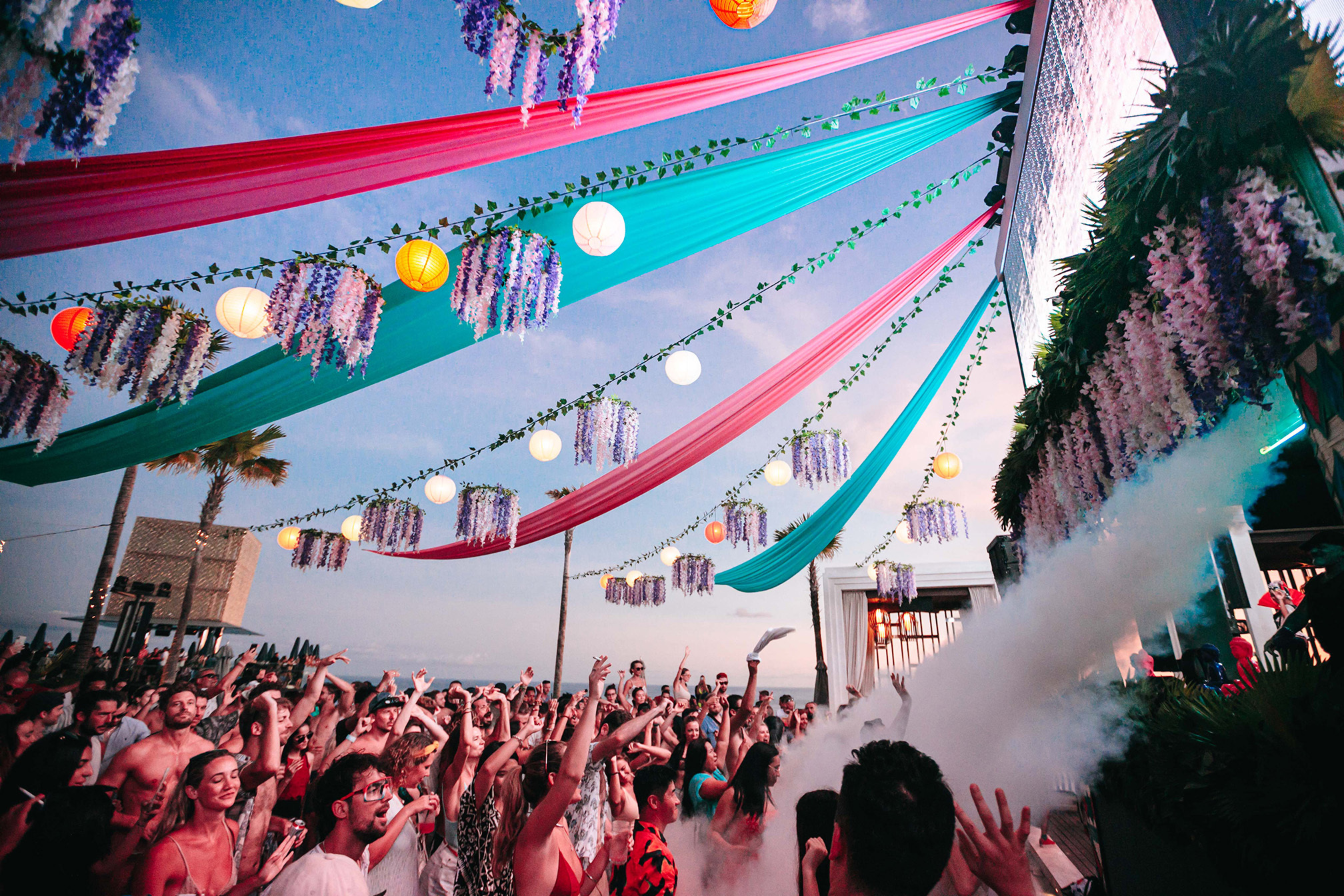
Is there any relationship between your time in Asia and how it developed you as an artist? And did these experiences at all influence All Day I Dream?
Absolutely, and Burning Man is another key element to that as well. There is a lot of familiarity in the experiences that I had in Thailand and Burning Man too. I remember one thing happening consistently throughout my life, and that's being somewhere open-air and watching the sun come up while dancing with a community of people. First it happened in Thailand, and then again at Burning Man. That sort of sparked this thought that dance music is about a centre point that a community gathers around…outside.
Another thing that happened was around the mid-2000s, I felt music changed, and it had become less about community and more about the individual. It became insular, and the crowd was male-heavy. I remember looking out once, and it was 95% men in black t-shirts, and that's not a party to me. It should be balanced. I'm not knocking techno; I just think at some point it becomes uncomfortable for girls to go out when it's majority men. It's less friendly, and the energy is different.
I was also in New York (Brooklyn) at the time and took note that my surroundings matched the party — they were grey, stark and industrial. And having been to Burning Man, I saw the same monotone canvas in Brooklyn as I did the desert. But at Burning Man, colours just pop against a muted beige surrounding, so I decided to add some colour to New York. A year later, I threw my first All Day I Dream party on a rooftop, and I consciously created a very feminine aesthetic with florals, material and lanterns, and created this really beautiful environment. Manhattan was in the distance, the sun was setting, and of course, the music I played was also very different from what was going on in New York — and people were crying.
All I'd really done was taken the elements that I had experienced myself, starting with that first sunrise on the beach in Thailand, and made a party with them. I also drew from the way music sounds outside (compared to the inside of an intense club) and the way nature feels when juxtaposed with industrial cities. And that's how my time in Thailand, and Burning Man, shaped the same All Day I Dream party that I'm back in Asia throwing today.
Does the music you play draw from Burning Man as well? I've heard it defines it.
See Burning Man isn't even really a music festival, it's an art festival. It just happens to have music at it. When I first started going, I didn't particularly resonate with the music though. It was more…dubstep. But that was before it was called dubstep, it was called desert breaks. Or electro house. And it was kind of gnarly, people would stomp in the dust and that was the thing.
So I just was in this gorgeous place — a vast open and empty space that's very flat. A blank canvas basically, but it's gorgeous. You have a lot of sky, too. And I just kept thinking that I had all this music I felt it would really complement everything that was going on around me in the desert. People build crazy art projects, they dress up crazy, and it just has its own magic and uniqueness to it. But the music at the time wasn't magical. It was good to dance in the dirt to, stomp your feet to — but it needed to be spiritual. Well, I'm always hesitant to use the word spiritual because every person's interpretation of what that means is different, but indeed it needed to be spiritual. So I decided to change things and ended up being one of the first DJs going out there, from this scene at least. And, I started encouraging other people to go to there. And now we're here, in Asia, just without the dust blizzards.
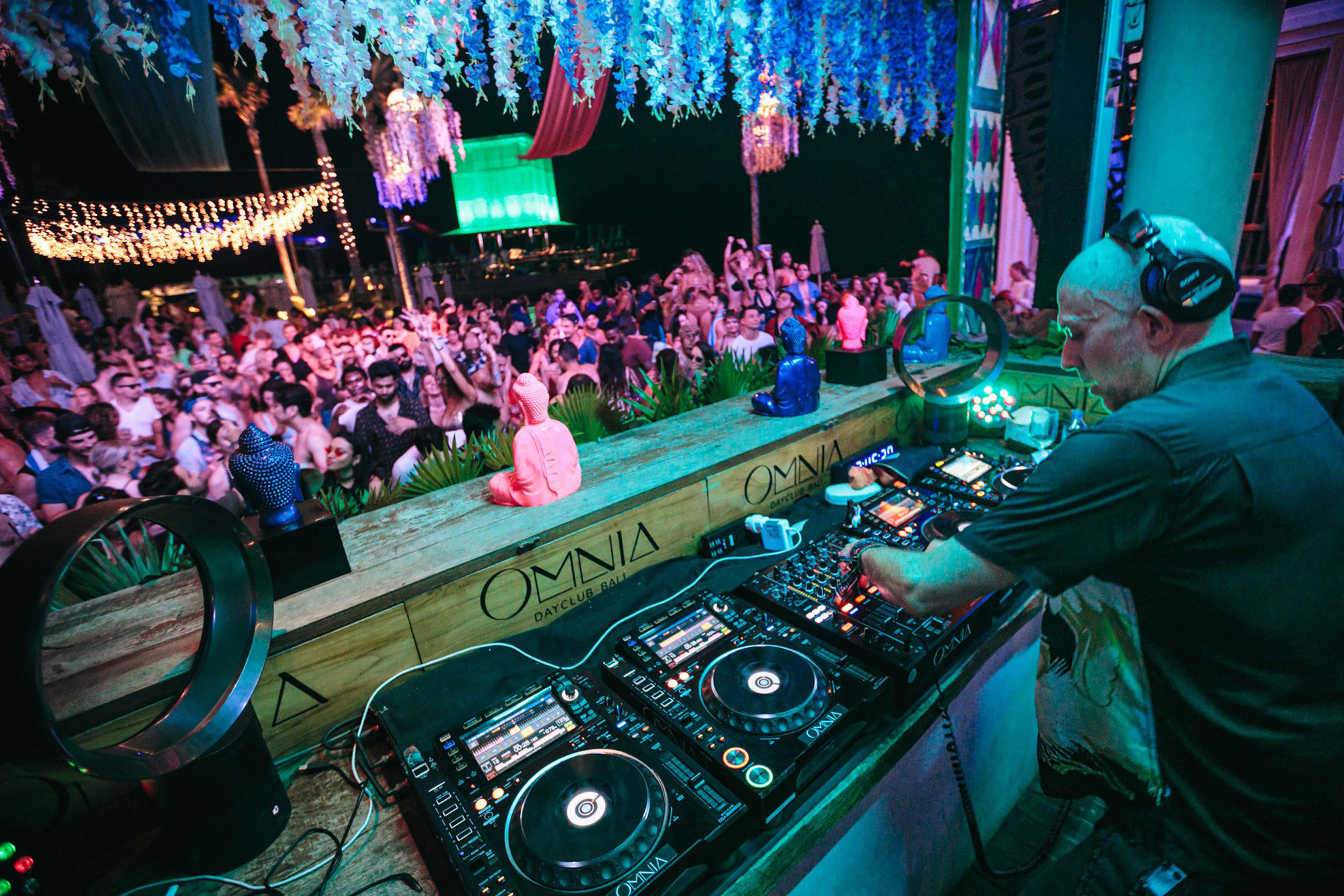
Does that mean that when you bring All Day I Dream to a new culture, it’s a cookie-cutter concept with your aesthetics? Or do you try to assimilate into local cultures?
We’ve called the event here ‘All Day I Dream About Bali Blessings’, but actually I feel like I’m bringing Bali influences to the events I throw in places around New York and LA — so actually we’re just bringing it back to where we borrowed it from. One of the common elements are these structures we use that have been described as temple-esque, and we do this embossing and engraving, which is a style we’ve actually taken influence from in Asia. I would love to have time to come and work with local artists on this project. It’s on the list, and it will happen — one day.
Have you ever thought about coming to Wonderfruit? It sounds like you would hugely align with its spirit...
Of course, Jason Swamy is my good friend, but I take my holiday in December. Slowly things like this are starting to intrude on my holiday though, like Art Basel in Miami and now there’s Wonderfruit. I don’t know what to do. I’ve actually begged Wonderfruit to move it to January because I’m secretly desperate to play it.
Let’s step back to planning your return. All these years while you’ve been in the west, have you been thinking about Asia and plotting you return? Or did you leave and never look back?
I never stopped thinking about Asia. It was my 20s, and it was a formative time in my life which gave me so much and allowed me to grow up (ish) as a man. And it was freedom from the gazing eyes of our judgmental parents, not that my parents are judgmental. I learned a lot about everything, but most importantly, I learned to be a really good DJ in Asia because I did it so much. I also think Asia is the next big market, it’s already got a lot going on, but I think there is another step coming.
Why do you say that?
I think it’s not just about the people that live here but also about the people looking to experience interesting destinations to travel to and tie into music. Techno tourism, isn’t that what they’re calling it? It’s a cute term.
I think there are so many really cool placed to discover, like Vietnam, which is emerging as a place with the kind of culture you don’t get on an everyday basis in an amazing location. In Asia, there is just freedom of doing events in places that you just can’t really do anymore in Europe.
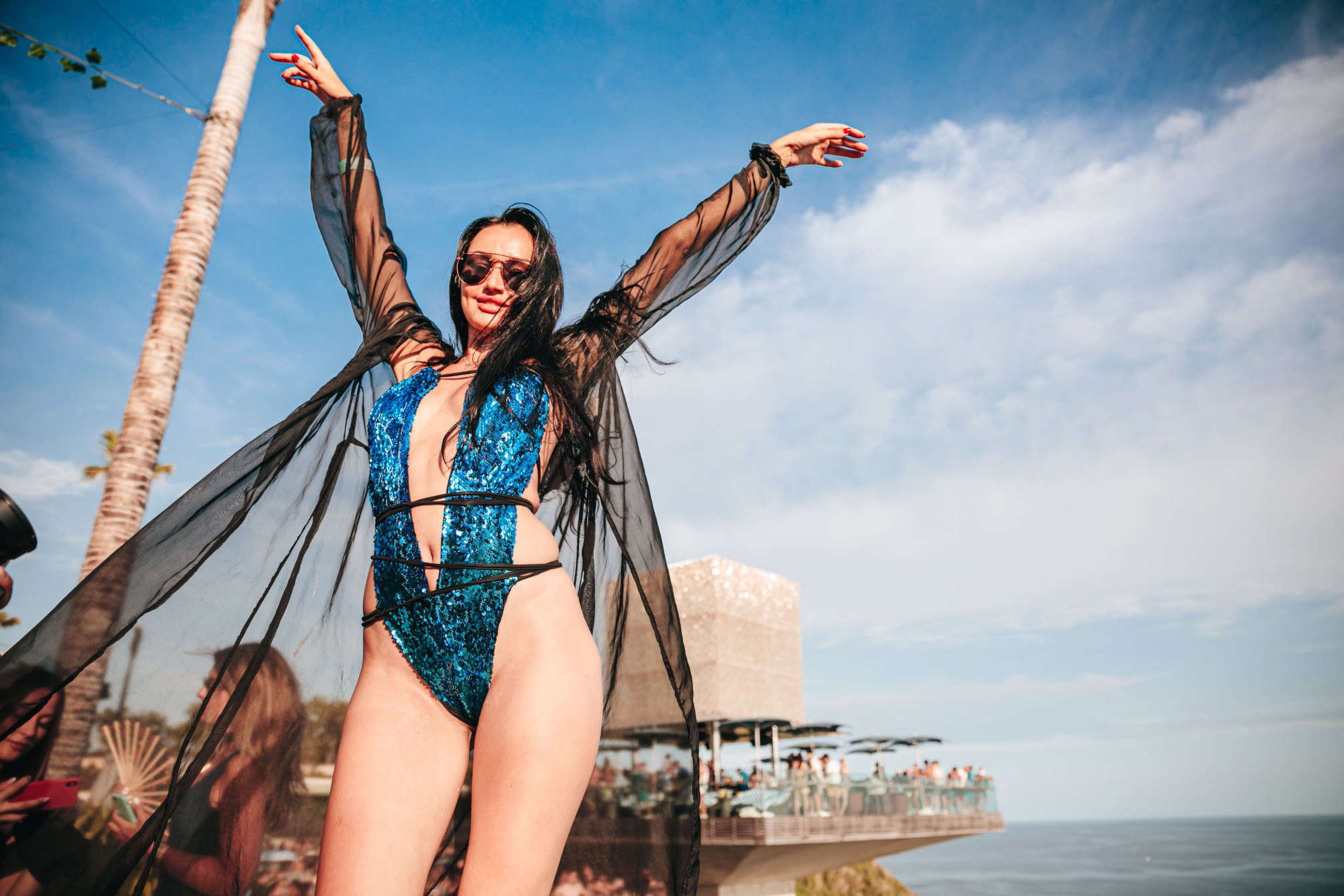
There is such a great music culture here but I’m curious to know how people in the west see Asia? Because it seems like a lot of western brands just see the region as a cash cow since we’re not seeing the opposite happen with Asian artists going west.
Well, it’s kind of the same as in Australia. Think about how many talented bands and DJs are there, but it’s far away too and people get caught up in their bubbles. It happens in Europe and North America also. It’s hard, and if I still lived in Hong Kong, I doubt that I would have achieved the same success that I did moving back to London. It’s connections! And meeting the right people at the right time. Which sucks, but at the same time, it doesn’t because it should motivate and encourage Asia to explore its potential, find holes and fill them. It’s like that Kevin Costner movie ‘Field Of Dreams' — if you build it, they will come. Just build it, and don’t worry about all the west. Be good at what you do, and it will happen.
What more can you tell us about your relationship with Asia in the future?
We’re always looking at different places, but to make it work, I think you actually have to focus on one region or one place for a while. In Asia, I think we’ll pick just one or two areas and build it. One thing I try and not do is just sell the idea as a one-off party. I want to mean something, and for it to mean something, people have to have a connection to it and to have a connection, you have to have repetition. We’ve been looking at Bali for a while, and I think we’ll stick to it. And if other stuff comes up, be it Wonderfruit or Vietnam, then great. I’ve heard Vietnam has a great festival but with too much techno. Although I feel like there is another side to that coin, and people as much as they want to stomp, they also want to sit down, and I'm fine with people chilling and recovering for a minute. Our music is quite blissful.
And finally, what does it mean to you to be back in Asia doing this event? What are the emotions that are stirring within you?
It feels like home. I mean obviously I’m from England but again it was a formative time in which I made amazing lifelong (and fleeting) friends in Asia. But also I LIVED here, and since I left I’ve I feel like I’ve been living on a plane. I’ve travel so intensely and it’s been beautiful but last year I turned 50 and I had this sudden fear or epiphany that I really needed to figure our where I wanted to stop. I live in London, but I don’t want to spend the rest of my life in London. I have no idea, but my eyes are open — and maybe it will be back in Asia…like you said, bring it back full circle.
Watch Lee Burridge play at OMNIA Bali via Cercle below:


